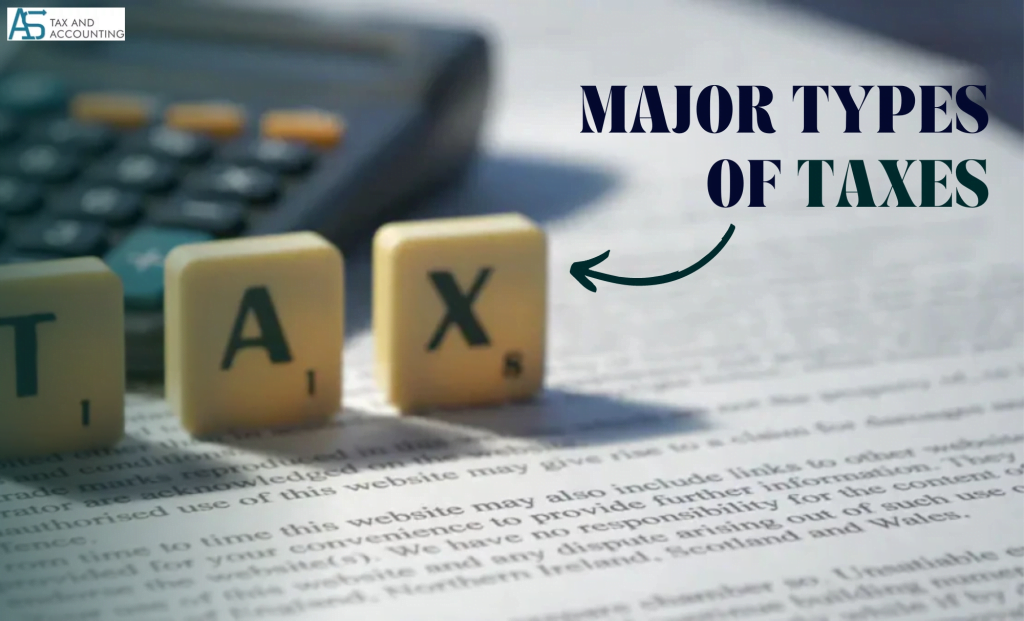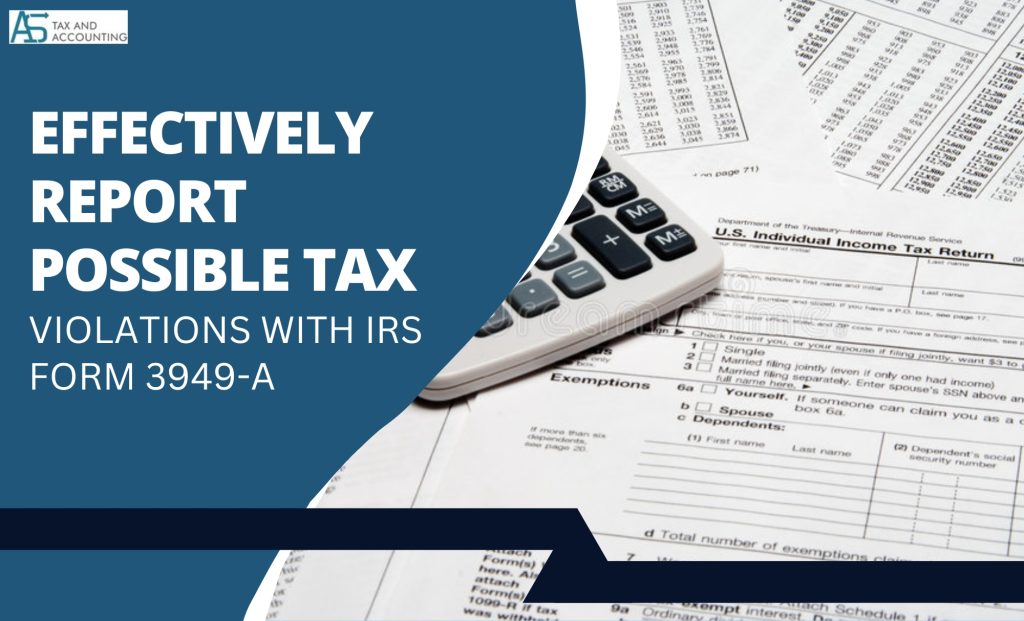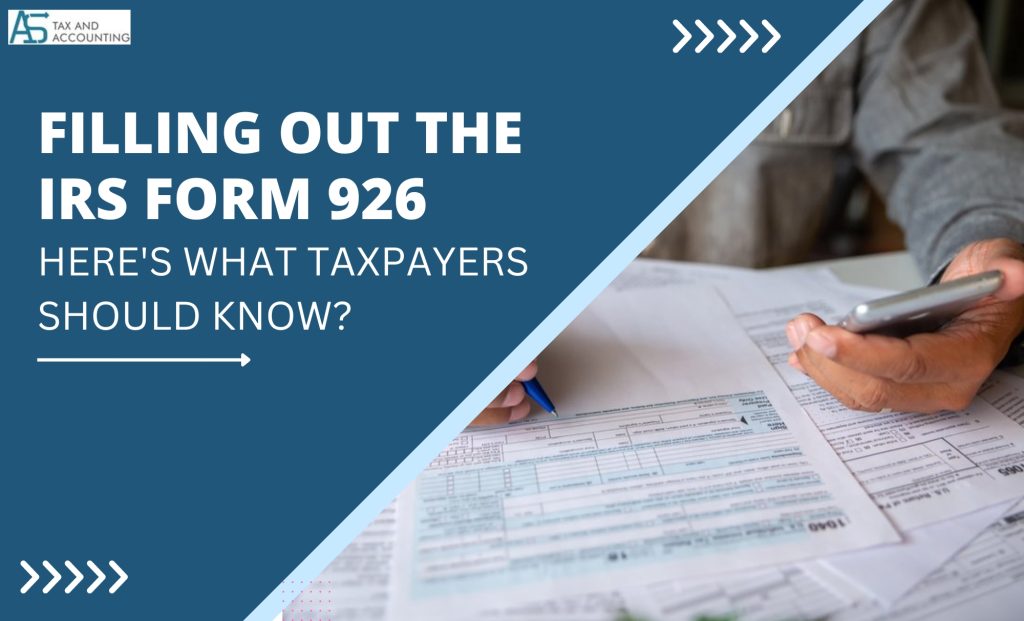Paying taxes is full of complications, and there’s no second guess to why people dread tax season. It is why CPAs earn so much money in the tax months. The more complex thing is what are the various types of taxes the citizens of the USA have to pay. There is a long list of taxes US citizens have to pay.
Taxes affect the lives of people directly or indirectly. It applies to investments, your home, items you buy or sell, also over a gift, and many other aspects. However, things can be confusing for an average citizen. So, AS tax and consulting will help you understand the kinds of taxes, methods of taxation, and how much an average US citizen pays in taxes.
Major Types of Taxes
Understanding the fundamentals of the American tax system, particularly the various sorts of taxes you may encounter, can be a valuable tool in financial planning, whether on the personnel or business level. There are 50 states in the USA, and different states utilize varied tax schemes. Although some states are mainly reliant on income taxes, others are reliant on sales or real estate taxes. However, you do not have to pay all types of taxes at once, and not all taxes apply to everyone.

Taxes on Things You Own
It is basically taxation on any property you own. It is one of the main types of taxes which US citizens have to pay.
Property Taxes
This value-based tax is imposed on any property or real estate an individual owns. They are common in nature. In the United States, property taxes are a critical source of revenue for state and municipal governments. Local governments use property tax money to pay for public services such as universities, highways, police and fire departments, and emergency medical services. Property taxes in the United States account for more than 30% of state tax collections and more than 70% of total local body tax collections.
Read out How To Reduce Pennsylvania Property Tax? – if you are in Pennsylvania and want to minimize your tax obligations.
Estate and Inheritance Taxes
If you own a property, then you may have to pay estate taxes and inheritance taxes. Both are usually applicable after the death of the owner. Across the USA, less than one percent of the citizens pay these taxes. They help to prohibit the accumulation of tax-free wealth among the country’s wealthiest families. The highest estate tax rate is 40%. However, estate and inheritance taxes are bad economic policies, so US states don’t apply them anymore. Only six states in the USA collect an inheritance tax. However, there is no federal inheritance tax.
Tangible Personal Property (TPP) Taxes
More than 40 states levy TPP taxes. TPPs are those that can be moved or touched, such as furniture, machinery, business equipment, merchandise, and automobiles.
TPP taxes account for a minor portion of total state and local tax collections, but they are complex, resulting in high compliance costs. They favor certain industries over others, and thus they influence investment decisions. They are a biased form of taxes.
Types of Taxes on Goods and Services
Another main type of tax a US citizen must pay is our goods and services. This form of tax is applicable to anything that you buy or sell.
Sales Taxes
A type of consumption tax applied to retail sales of goods and services is the sales tax. The USA relies heavily on this type of traditional retail sales taxes, which are a key funding source for state and municipal governments. The tax is calculated as a percentage based on the purchase price of the item. Typically, state and municipal government organizations impose it.
Excise Taxes
Excise taxes are determined by item quantity as opposed to sales tax, which is determined by the price. These taxes make up a relatively small and unstable portion of total tax revenues. It is because they are applicable to a particular commodity or activity in addition to a general consumption tax. On top of items that are subject to federal taxation, states also levy their own excise taxes. Excise taxes on things like cigarettes, alcohol, soda, gasoline, and gambling are some examples.
Sin and Luxury Taxes
Products that are harmful to health and only intended for adult usage are subject to a sin tax. It is an excise tax in some ways. Cigarettes and alcohol are subject to sin taxes. On expensive items, a luxury tax is assessed. These include expensive cars and jewelry.
Types of Taxes on Income
It is a major source of tax money for federal, state, and local bodies. There are individual income taxes, taxes on businesses, and payrolls applied by the US government.

Individual Income Taxes
It is a common practice across the world to pay taxes for personal income. The same goes for US citizens. Regardless of employment status, they have to declare their income and pay taxes according to the tax bracket. The tax amount depends on the income of the person. The federal body offers seven tax brackets. For the 2022 tax year, federal rates range from 10% to 37%. Moreover, apart from Florida, Texas, Wyoming, South Dakota, Nevada, Washington, and Alaska, all other states have separate income tax rules.
Business Income Taxes
Business taxes, also known as corporation taxes incurred on a company’s profits. Currently, the United States has a flat 21% corporate tax rate. The corporate tax rate was 35% prior to the passage of the Tax Cuts and Jobs Act (TCJA) of 2017. As part of the Inflation Reduction Act of 2022, the US Congress voted a new 15% corporate minimum tax into law.
Capital Gain Taxes
Capital assets generally encompass anything you own for investment or pleasure. It includes stocks, bonds, automobiles, jewels, and antiques. Every time when the value of those assets rises, there is a capital gain. The amount of capital gains tax you must pay depends on the possession of the asset. If you have it for one year or less, you are subject to the short-term capital gains rates, whereas if you have it for more than a year, you would be subject to long-term capital gains rates. Long-term capital taxes are lower than regular tax rates. State taxes also levy capital gain taxes.
Payroll Taxes
Payroll taxes are major types of taxes. It is levied against employee wages and salaries to fund social insurance schemes. Employers deduct payroll taxes from employees’ paychecks and then send the money to the federal government to pay for Medicare and Social Security. In 2023, employees will contribute 6.2% of their first $160,200 in earnings to Social Security and 1.45% of their total salary to Medicare.
Methods of Taxes
In the USA, there are three main types of taxation techniques. These methods define how a tax is applied to the individual or group.
- Proportional or flat taxes.
- Progressive taxes.
- Regressive taxation.
Flat and Proportional Taxes
A proportionate tax, sometimes known as a flat tax, is one in which the amount you pay is in proportion to your income. It is not at the federal level. However, these taxes are available at the state level. For example, A state with a flat income tax of 7% would require all taxpayers to pay 7% of their taxable income, regardless of their income level.
Progressive Taxes
With a progressive tax, your average tax rate rises in proportion to the amount of taxable income you have. The term “progressive” refers to the fact that the tax rate rises progressively with an increase in taxable income. Tax rates for the wealthiest are greater than for the people with less income. Therefore, high-income Americans pay higher taxes than middle-class Americans. Progressive taxes make up the majority of income taxes in the US.
Regressive Taxes
Progressive taxes have a counterpart, and those are regressive taxes. In the case of regressive taxes, the average rate you pay on your total income decreases when your income rises above that threshold. Thus, the person with a lower income will feel the burden of regressive taxes more than people with a higher income.
Why Do We Pay Taxes?
It is the responsibility of the citizen to pay taxes on their income (if he falls into the tax bracket range). The tax money collection helps the government to pay the employees of the public bodies and invest in various public programs. The government uses the tax money for economic growth and development. Various government schemes which help poor and underprivileged people are supported by tax money. The government invests this tax money into healthcare benefits, education, and infrastructure.

If you fail to pay the various types of taxes, the Internal Revenue Service may charge penalties on you. So, it is a good practice to pay different types of taxes on time to avoid hefty fines and help in the development of your country.
If you are worried about taxes click here to talk to Our ” Professional CPA for Tax Services ”
How Much Does the Average American Pay in Taxes?
As we have mentioned earlier, the federal government implies seven tax brackets. Due to the seven different brackets, it is tough to decide what is the average tax rate. Since the tax rate varies from 10% to 37%, you can assume it to be between 22% to 24%. The tax rate varies according to the income of the individual. Also, to keep up with the inflation, the income range is modified annually.
The tax brackets for single filing status for the year 2022 are according to the below table.
| Income Range | Tax Rate |
| $0 to $10,275 | 10% |
| $10,275 to $41,775 | 12% |
| $41,745 to $89,075 | 22% |
| $89,075 to $170,050 | 24% |
| $170,050 to $215,950 | 32% |
| $215,950 to $539,900 | 35% |
| $539,900 or more | 37% |
Frequently Asked Questions
The United States has a progressive taxation system. In this, the income that a person (or family) pays in taxes tends to rise as their income increases. Therefore, people with higher incomes have to pay more taxes due to the higher tax bracket.
There are various tax categories. The net financial performance is subject to additional taxes like individual or corporate income taxes. On the other hand, transactions may result in some sales taxes or tariffs. Other taxes are incurred due to irregular events like estate taxes and capital gains taxes.
The percentage of the tax rate is the same for federal and state bodies. However, they may differ in the way they are applied. It also varies according to the type of income. The tax credits and deduction changes from state to state.
Tax penalties for the different taxes stated above could consist of
1. A fine amount.
2. An interest amount that results in an increasing fine depending on how long the debt is past due.
3. Not allowing the business to provide any service.
4. The seizure of the firm property.
- Author Details
- Latest Posts





